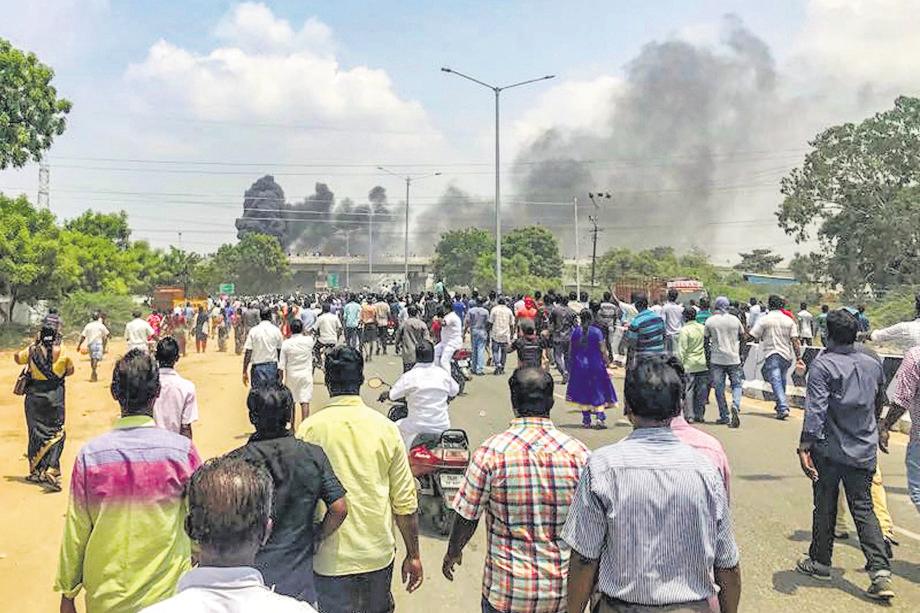On Tuesday 29 May, the allotment of land for the proposed expansion of Vedanta group’s copper smelter plant in Thoothukudi was canceled, “in larger public interest” by the State Industries Promotion Corporation of Tamil Nadu Ltd (SIPCOT). In an official release SIPCOT said, “The cancellation of allotment of 342.22 acres of land has been made in larger public interest and this has been communicated to the company.” SIPCOT in its communication to the Vedanta group said, “As the allotment of land for the proposed expansion has been made by SIPCOT, in larger public interest, the land allotment made by SIPCOT for proposed expansion of copper smelter plant (Phase-2) by Vedanta Ltd. is hereby canceled”. It further added, “The land price collected for the said land allotment will be refunded as per the norms of SIPCOT”.
This move comes a day after the Tamil Nadu government on Monday, ordered the State pollution control board to seal and “permanently” close the Sterlite Copper plant following last week’s protests during which at least 13 people were killed in police firing.
The order issued by the Environment and Forests Department said, “Under section 18(1)(b) of the Water Act, 1974, in the larger public interest, the government endorses the closure direction of the Tamil Nadu Pollution Control Board (TNPCB) and also directs the TNPCB to seal the unit and close the plant permanently.” It also said that under the Article 48A of the Constitution, “the state shall endeavor to protect and improve the environment and to safeguard the forests and wildlife of the country.”
The state Chief Minister Edappadi K. Palaniswami, who earlier justified the state crackdown and police firing on the protesters as an act in ‘self-defence’ and blamed the opposition and outsiders for ‘instigating’ the local people said, the government had issued the directive to seal and ‘permanently’ close the copper unit in deference to the ‘sentiments’ of people.
The residents and community organizations in Thoothukudi have been struggling for decades against pollution by Sterlite Industries’ copper smelting plant. The company has been found in violation of several environmental and labour laws in the country since its operation in 1997. Environmental activists have documented groundwater and air pollution in the neighbourhoods and have petitioned various institutions including TNPCB and NGT to shut down the polluting factory and bring the polluter to justice.
Silverpuram village is one of the glaring example of what Sterlite had done to the surrounding villages. Effluents, slag and gypsum dumped over the last two decades,villagers say, have irreparably contaminated the ground water of Silverpuram. Several water bodies and public tube wells have been abandoned as the water is discoloured and unusable. Mohamed Iqbal, a villager told NDTV, “We used to have water from the well but now we can’t, and have to depend on irregular piped water supply”. In this village of 2000 people, sixty households have cancer patients and all of them blame Sterlite for their plight. An analysis, by the state pollution control board, of water samples from 15 locations in the vicinity of the Sterlite plant has thrown up shocking findings. Sources in the Tamil Nadu Pollution Control Board have told NDTV, presence of neurotoxins like lead, as high as 39 to 55 times of the safe limits have been detected.
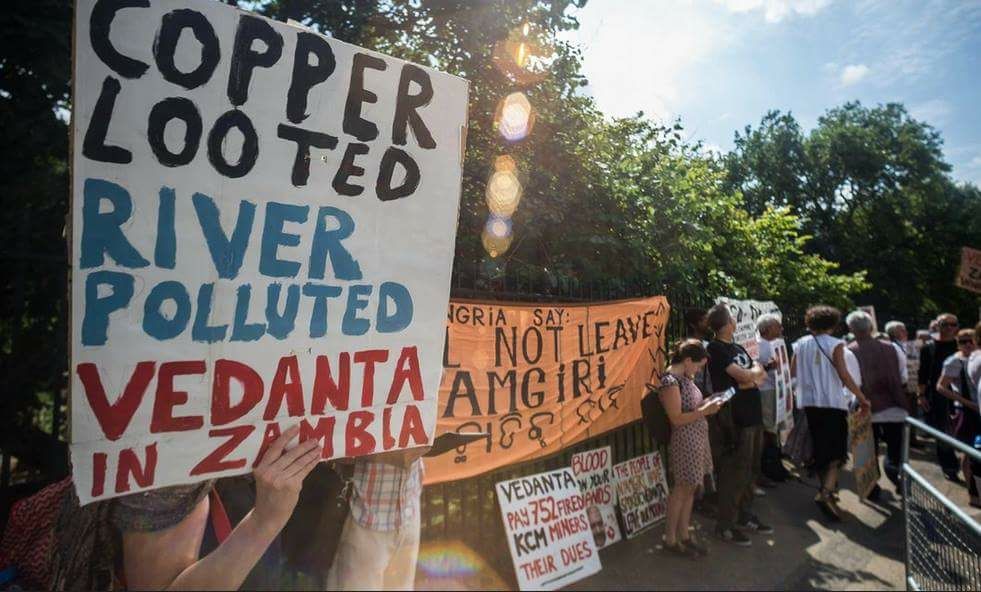
Source: Internet
The people living for decades in fear for their life and health, intensified their agitation in the last few months, when earlier this year, Sterlite started work to expand its current facility on the 300 acres of additional land allotted to the company in 2008. These expansion plans would double Sterlite’s production to 800,000 metric tonnes per annum, by 2019.
A petition was filed by environmental activist Fathima Babu who has championed the Anti-Sterlite Struggle Federation since Sterlite set up the plant in 1996, requesting the court to restrain Vedanta Ltd. from carrying out activities on the lands on which the proposed copper smelter-unit II was being constructed. On May 23, the Madras High Court stayed the expansion of the plant. The court also directed the Vedanta to submit within four months a report after holding a public hearing on the plan for expansion.
According to Rajkumar and activist Fathima Babu, villagers in Kumarattiyapuram, in mid-January, first noticed containers and building materials being moved into a piece of land adjoining the smelter. “The angry villagers and activists and all interested parties met with the collector on 5 February. But as expected, the meeting did not yield any results. So on 12 February, the villagers decided to hold a morning-to-evening fast at the VVD junction in the city. Later at night, the 350 villagers refused to get up when police asked them to. Instead, the people moved into the nearby MGR Park, also called the Sterlite Park, as it is built and maintained by them, and stayed overnight,” says Fathima Babu. A silent protest at the Sterlite Park or the MGR Park on 12 February marked the beginning of the protest movement.
From 13 February until 23 March, villagers from Kumarattiyapuram sat in groups, in turn, under a Neem tree as a mark of protest against the plant. From 25 March until 20 May, more villages joined in what can be described as a one-of-its-kind of protest.
24 March, 41st day of the movement, was a turning point in the 22-year-old struggle against Sterlite — on that day, over 100,000 people assembled at VVD junction in protest. They had been mobilized by activists who distributed pamphlets with the slogan, “Ban Sterlite, Save Thoothukudi”, among the people in the city. Supporters included the owners of the city’s 25,000 shops, apart from the 15,000-strong fishing community. On that day the activists had warned the authorities that on the 100th day of the protest they will march to the District Collectorate and gherao it if in the meantime the government didn’t order permanent closure of the existing unit and suspension of the expansion plant. Between 20 March and 20 May 8-10 more villages join the movement and starts putting up makeshift tents. On 20 May, Thoothukudi’s administration called representatives from 18 villages, activist leaders and Sterlite executives for a meeting to resolve the impasse. The meeting ends without any decision. On 22 May at least 25000 people rally from Beach Road to the Collector’s office. The protesters were stopped before they could reach the Collector’s office, the situation turned violent and the police starts firing. Eleven people were killed and many injured in the police firing. The protest continued on, from 23 May to 25 May. Skirmishes between people and police were reported from many places. Over 100 people were injured and two more people died in police firing, taking the death toll to thirteen.
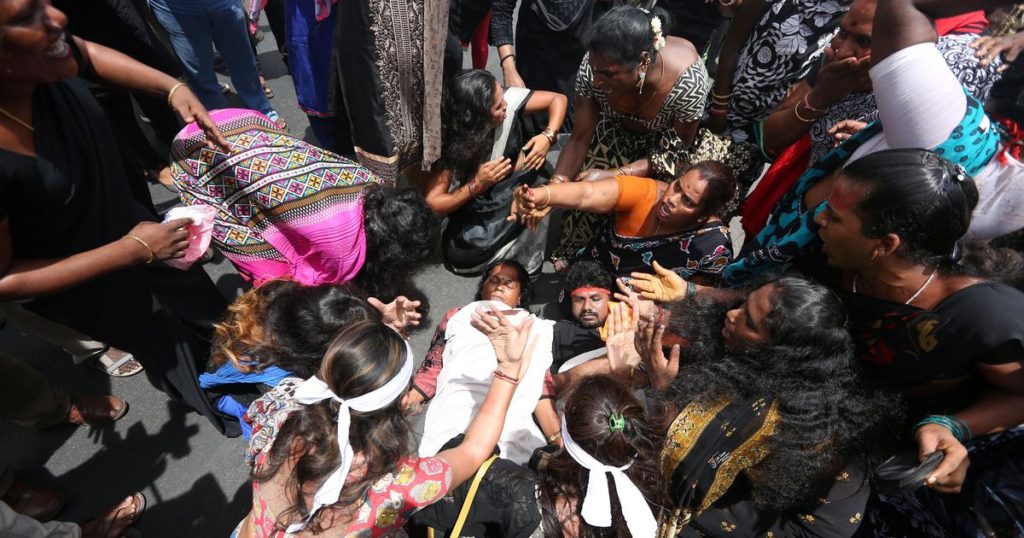
Source: Internet
In the days that followed, there has been a massive crackdown on communities who participated or supported the movement, the Police turned off the internet and conducted a “cleansing” operation, combing through neighbourhoods, dragging out young boys to the police station, arrested scores of community members. Reports of illegal detentions, torture and custodial violence were reported. Media, Government officials and even the Sterlite CEO started harping about ‘outside’ and ‘nefarious’ elements, leading astray the peaceful protests, notwithstanding the fact that their own institutions have failed to protect the interests of communities that has led to the massive loss of lives. To blame the police officers alone for the deaths, but failing to address all the actions and in-actions by the pollution board, courts and government that led to this moment is short-sighted and deceptive.
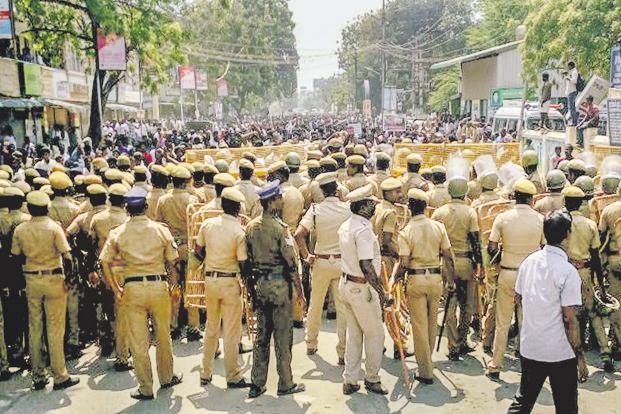
Source: Internet
The images and news of the massacre by the police and their subsequent violent crackdown on the protesters that were telecast live on TV channels and circulated widely over social media, shocked the people of Tamilnadu and jolted them out of their slumber, silence and indifference. People from all walks of life came out on the streets and rallied in solidarity. All the major opposition parties including DMK stood in support of the people’s demand to permanently shut Sterlite. Students, youth and workers’ organizations across Tamilnadu rallied against the brutal police action against anti Sterlite protests in Thoothukudi. Workers from MRF, TI Metal, Dongsan, Bhadra, IT workers, agricultural labourers, fish workers participated in gate-meetings, lending solidarity to the ongoing protests and demanding permanent closure of Sterlite.
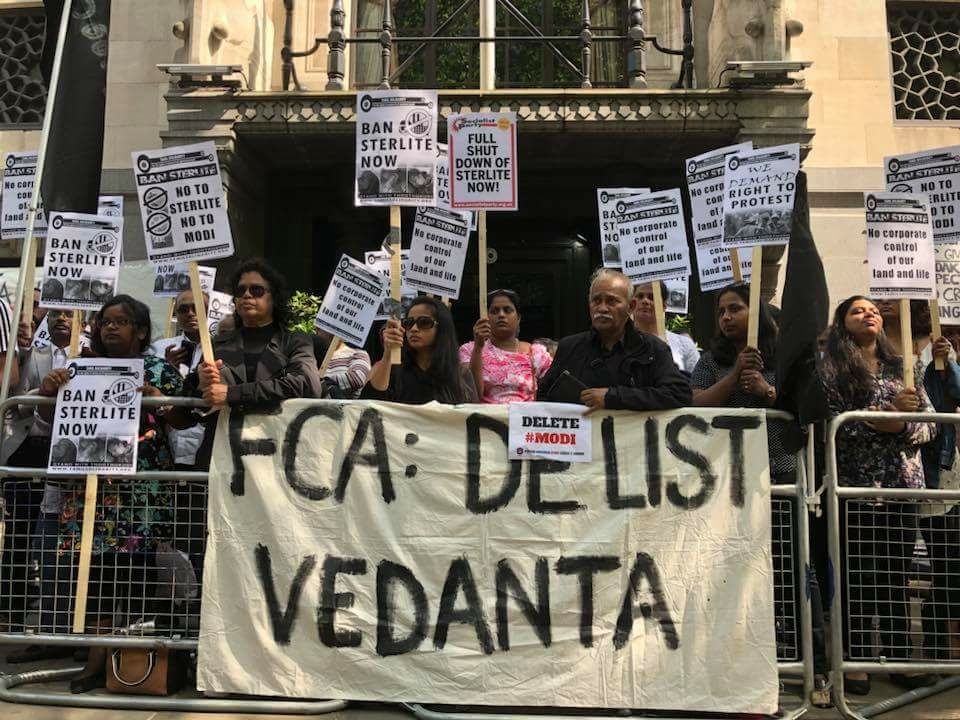
Source: Internet
Soon the protest spread to rest of the country and abroad. Massive demonstrations were held in London, the global headquarter of the Vedanta Group. Labour MP and shadow Chancellor, John McDonnell called for Vedanta to be de-listed from the London Stock Exchange. In a statement to Mint, he said, “I believe there is widespread support for de-listing the company and I will support the campaigners taking this matter to court.” He further added, “I have raised concerns about this company before, by supporting the campaign by the London Mining Group, which is a campaigning body highlighting the impact of mining companies on human rights and the environment. I have also sought to amend legislation in this country to ensure the track record of companies like this is taken into account when applying for listing on the London Stock Market.”
In the face of such massive public outcry, the Tamil Nadu Government which till then was justifying the police firing and putting the entire blame on activist and protesters decided to sit up and take damage control measures. The Government announced cutting up of power and water supply connection to the Sterlite plant, ex gratia compensation amounting to 1.5 to 10 lakhs to the injured and dead, transfer of Thoothukudi Collector and Police Super, followed by the ‘permanent closure’ of the Sterlite plant and finally canceling the land allocated for the expansion unit.
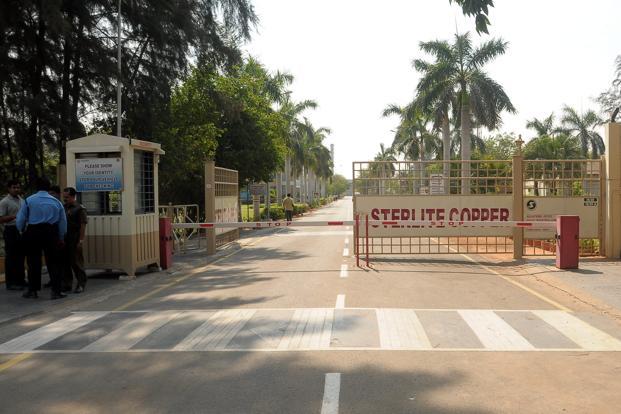
Source: Internet
The State Government’s measures, though they came after so much sufferings and loss of precious life, made people heave a sigh of relief and satisfaction. Their two-decades long demand was finally met. But not everybody seems to be happy.
Anti-Sterlite activists spearheading the movement are skeptical about the Government’s action. They argue that the suspension and closure order was necessitated by the international attention that the massacre received, and the political opportunity it will provide to the DMK in the upcoming assembly election. They alleged that the Government is hoping that people will forget the incident when monetarily compensated. They point out that the FIR filed by the police still talks only about the people’s violence and justifies the massacre as self-defence – so it is amply clear that the state isn’t going to take responsibility, and is also going to protect those who were responsible for the massacre. There seems to be no move to investigate the involved police officials for murder.
Their skepticism is not without any basis. Sterlite was closed many times earlier also, including after a gas leak in March 2013 that killed one person. The TNPCB closed down the plant, only to reopen it later. The matter went to the Madras High Court and it ordered Sterlite to shut down for non-compliance of pollution norms. But in the Supreme Court the company won a huge reprieve where it had to pay a paltry sum of Rs. 100 crores as fine, and was allowed to continued its operations in return.
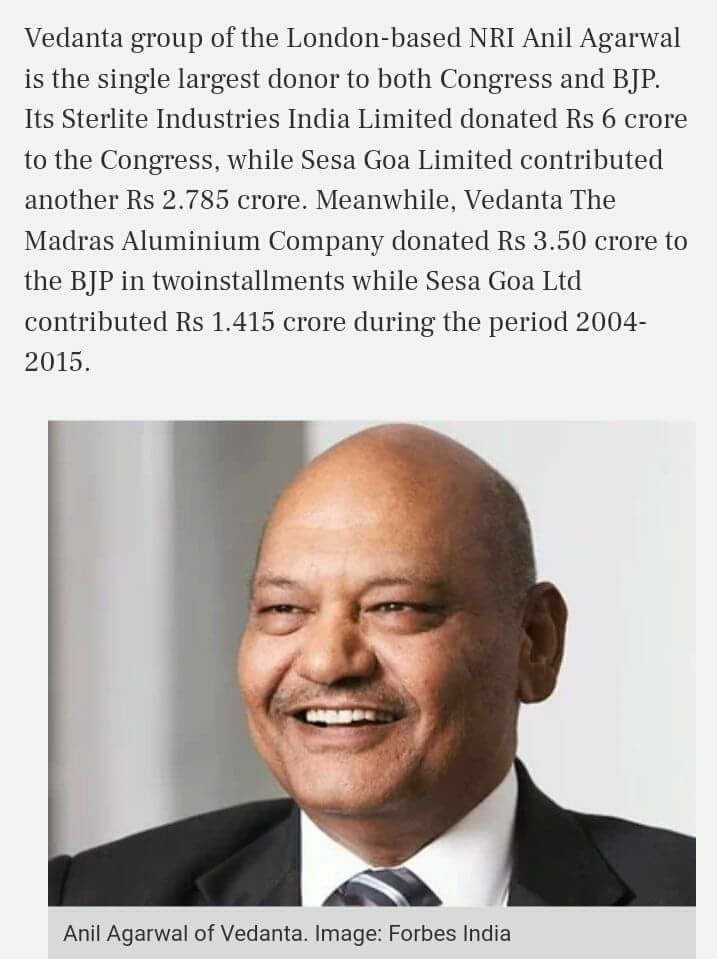
Source: Internet
The social activists and community leaders associated for decades with the anti-Sterlite movement refuse to believe that the fight is yet over. They are of the view that the prospect of a further legal battle is clear and present. “It is very likely that the company will move the Supreme Court against the closure order, and Vedanta, a global giant, has huge resources with which to fight its case way up to the Supreme Court. On top of this, the company has huge political clout across party lines. If Jayalalitha welcomed Sterlite into Tamil Nadu, Karunanidhi inaugurated the plant. The company is one of the biggest donors to the BJP and the Congress and it had P. Chidambaram, ex-finance minister, on its board of directors.
Many legal experts too have raised concerns and opined that the Government order has many loopholes and it will not stand scrutiny of law. Harish Vasudevan, an Advocate in Kerala High Court and National Green Tribunal expert in Environmental Law, has termed the Tamilnadu government’s order of permanent suspension as a mere eyewash and a drama enacted to buy time. Given below are excerpts from his facebook post where he makes his point.
“The Tamilnadu Government is playing a drama now. They have issued an order stating the permanent closure of M/s Vedanta Ltd Copper Plant, Thoothukudi, endorsing the Pollution Control Board’s earlier order in this regard. Order is said to have issued under Sec.18(1)(b) of the Water Act.
This is an eye wash. Firstly, this is a non-speaking order and no reasons stated for such closure. Secondly, Sec.18 does not empower the State to issue Closure order for a company. This may not stand in court, even for a day!
Order should have been issued under Section 5 of Environment (Protection) Act and Sec 33A of the Water Act. Order should have contained the details of the Water Pollution caused, mention the reports, evidences, public protest and series of violations caused by the company till date. Before passing any such order, the Company should have been given to present their version by sending them proper notice. Order should contain the logical reason for rejecting the arguments of the company and reason for such closure. Then only, it will stand in a court of law.”
Vaiko, founder of MDMK and one of the most vocal supporter of the anti-Sterlite movement since its inception, alleged that the Tamil Nadu government had issued the order to merely save face. “Their intention is to escape the people’s wrath with this order. The Sterlite issue is far from over, the court’s decision has to come and whether it will be a repeat of 2013, I do not know.”
Meanwhile, a preliminary fact-finding in Thoothukudi is currently underway at the behest of the Coordinating Committee for the People’s Inquest, into the Thoothukudi Police Firing to unearth various facets of the week-long orgy of violence indulged in by the Tamil Nadu police – many details that are still hidden and only known anecdotally. The fact-finding exercise will culminate in a People’s Inquest in Thoothukudi on 2-3 June, 2018. The Inquest will be conducted by a national panel comprising retired members of the judiciary, police and administration, in addition to lawyers, academicians and journalists.

